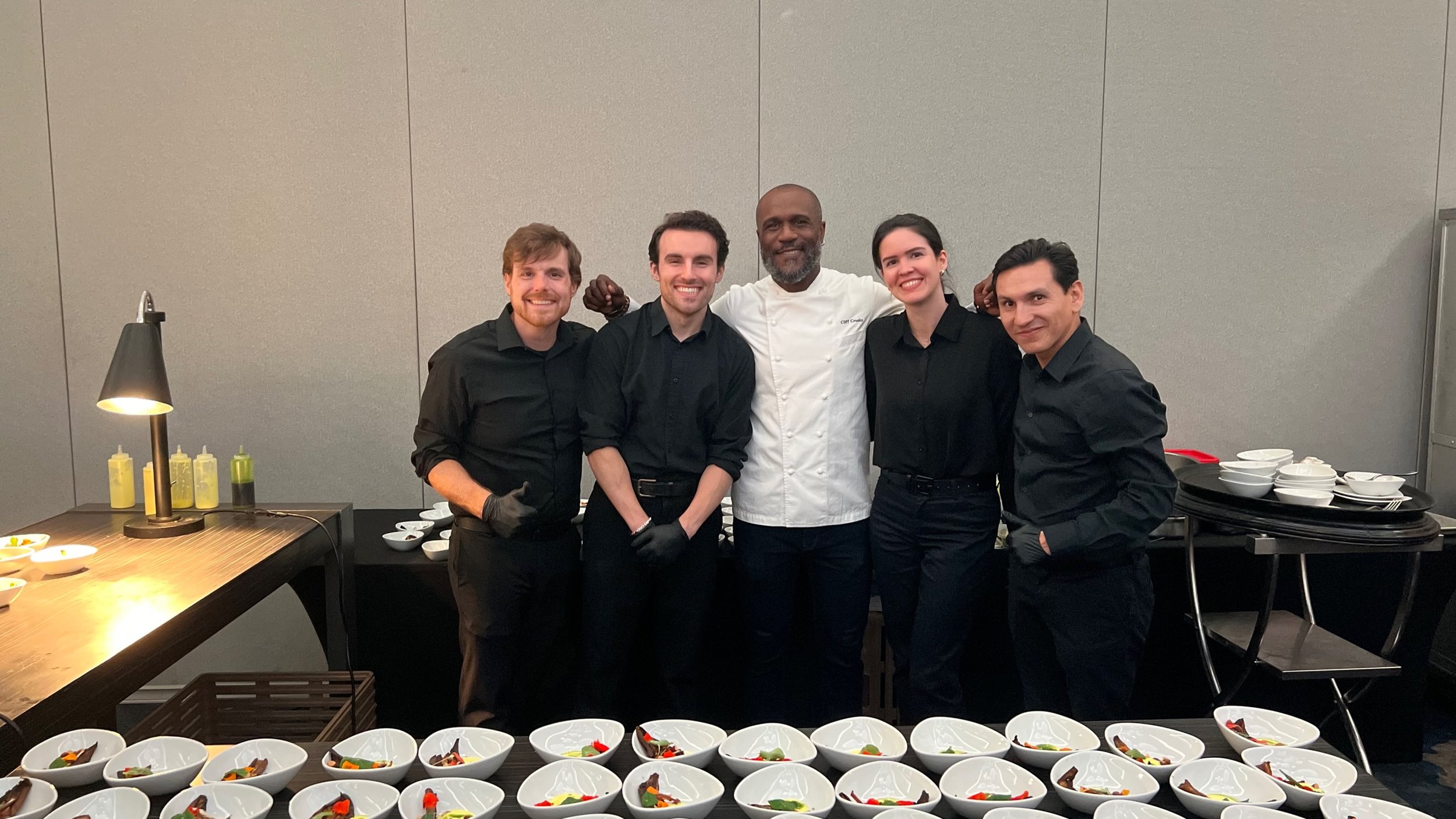Waitstaff Calculator | How Many Waitstaff
Waitstaff Calculator
Waitstaff Needed: 0
Captains Needed: 0
Total Staff Hours: 0
After two decades of managing events from intimate celebrity dinners to grand galas for thousands, I've learned that perfect service comes down to precise staffing. While many planners use rough estimates, successful events require exact numbers based on service style, guest count, and venue dynamics.
Understanding Plated Dinner Service
The most common question I hear is, "How many servers do I need for a plated dinner?" The industry standard is one server per eight guests, but understanding why this ratio works reveals much more about proper event staffing.
A single server handling more than eight guests during a plated service creates a domino effect of service issues. Picture this: A server must deliver eight hot plates within a 30-second window to maintain temperature and timing. Add just two more guests, and that window stretches to 45 seconds – long enough for the first plates served to lose their optimal temperature. This small staffing shortcut can transform a $200 per plate dinner into a lukewarm disappointment.
Consider a recent 160-person gala I oversaw. With 20 servers (1:8 ratio), each server managed two tables of eight. This allowed for:
Synchronized service execution
Personalized attention to dietary restrictions
Seamless wine service pacing
Proper plate clearing between courses
Time to address unexpected requests
When clients ask about reducing staff to save costs, I share this insight: Guests remember temperature and timing far more than fancy ingredients.
Family Style Service
Family style service presents unique challenges that inform our 1:20 waitstaff ratio requirement. This service style isn't simply about placing platters on tables – it's an orchestrated dance of timing and replenishment.
Why twenty guests per server? Each table typically receives 4-5 dishes simultaneously, with servers needing to:
Explain dish components
Manage platter rotation
Monitor portion availability
Maintain beverage service
During a recent wedding for 180 guests, we deployed nine servers for family-style service. This allowed each server to manage three tables of ten guests effectively. The result? Constant platter rotation without empty platters sitting on tables – a common issue when understaffed.
Buffet Service
The biggest misconception in event planning is that buffet service requires minimal staff. Our ratio of one server per 25 guests comes from years of observing guest flow and service patterns.
Here's what most planners miss: Buffet service isn't passive. For a 100-person event, four servers means:
One managing each buffet side
One dedicated to beverage service
One handling continuous table clearing
Without this coverage, you'll see the telltale signs of understaffing:
Empty chafing dishes
Cluttered tables
Guests waiting for clean plates
Uncleared plates blocking new guests
Tray Pass Service
Passed appetizers require the most precise staffing calculations of any service style. Our formula of three servers per 50 guests for combined food and beverage service comes from methodical observation of guest interaction times.
Each tray pass interaction averages 15-20 seconds. Factor in:
Tray restocking (3-4 minutes)
Guest circulation patterns
Hot item temperature maintenance
Beverage replenishment
Empty glass collection
For a 200-person cocktail hour with both food and beverages, twelve servers ensure every guest encounters a new offering every 3-4 minutes – the sweet spot for guest satisfaction.
Service Captains
The captain-to-server ratio defines service quality as much as the server-to-guest ratio. Our standard of one captain for every five servers initially, then one additional captain for every 15 servers, comes from understanding communication flow during peak service times.
Captains aren't just supervisors; they're service conductors. In a recent 300-person corporate gala, our captain structure enabled:
Real-time service adjustment
Immediate problem resolution
Seamless kitchen timing
Quality control at every table
Guest request escalation
Beyond the Numbers
While our calculator provides excellent baseline numbers, expert planners consider these additional factors:
Venue Architecture
Multi-level spaces require additional staff. Add 15% more servers for:
Separate cocktail levels
Outdoor/indoor transitions
Multiple room layouts
Menu Complexity
Complex menus require additional support:
Wine pairing service: Add one server per 50 guests
Multiple entrée choices: Add one server per 75 guests
Tableside preparations: Add one server per 40 guests
Time Dynamics
Event duration dramatically impacts staffing:
Six+ hour events: Increase staff by 30%
Split shift events: Add 20% for transition periods
Late night extensions: Have 40% of original staff remain
Making the Calculator Work for You
While our calculator provides precise numbers based on these ratios, remember that every event has unique needs. Use it as your starting point, then adjust based on:
Venue requirements
Menu complexity
Service transitions
Guest demographics
Event timeline
Conclusion
Perfect service isn't about having enough staff – it's about having the right number of staff positioned correctly throughout your event. Use our calculator to establish your baseline, then let our team help fine-tune these numbers for your specific event needs.
Want to get started? Input your event details above and click "Calculate Staff" to receive instant, professional staffing recommendations based on decades of event experience.


